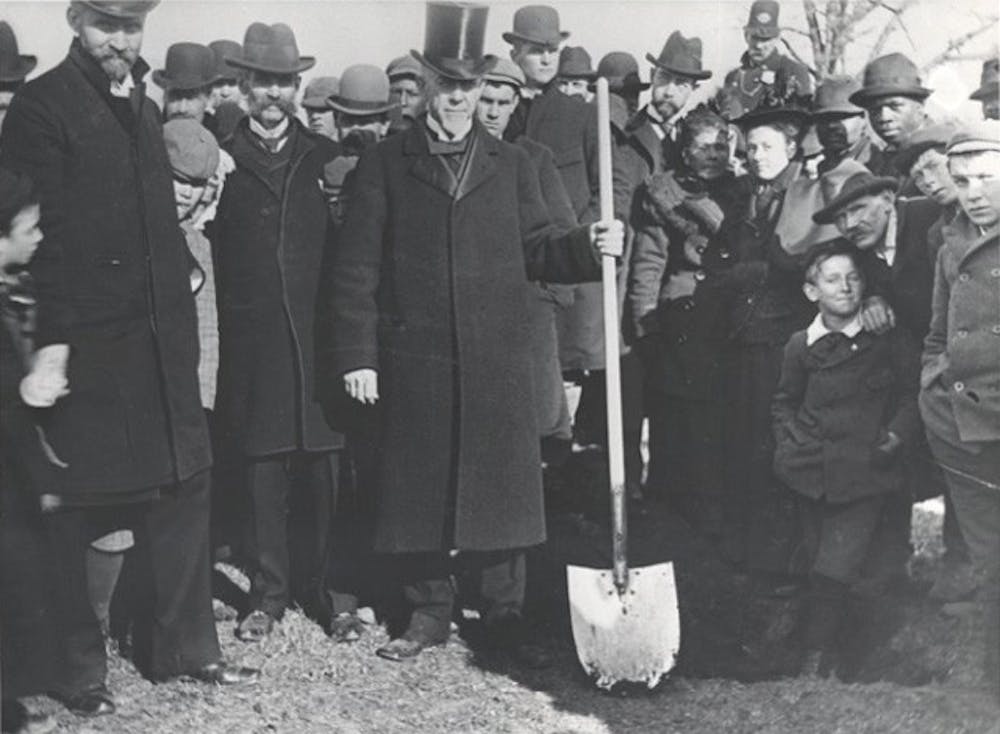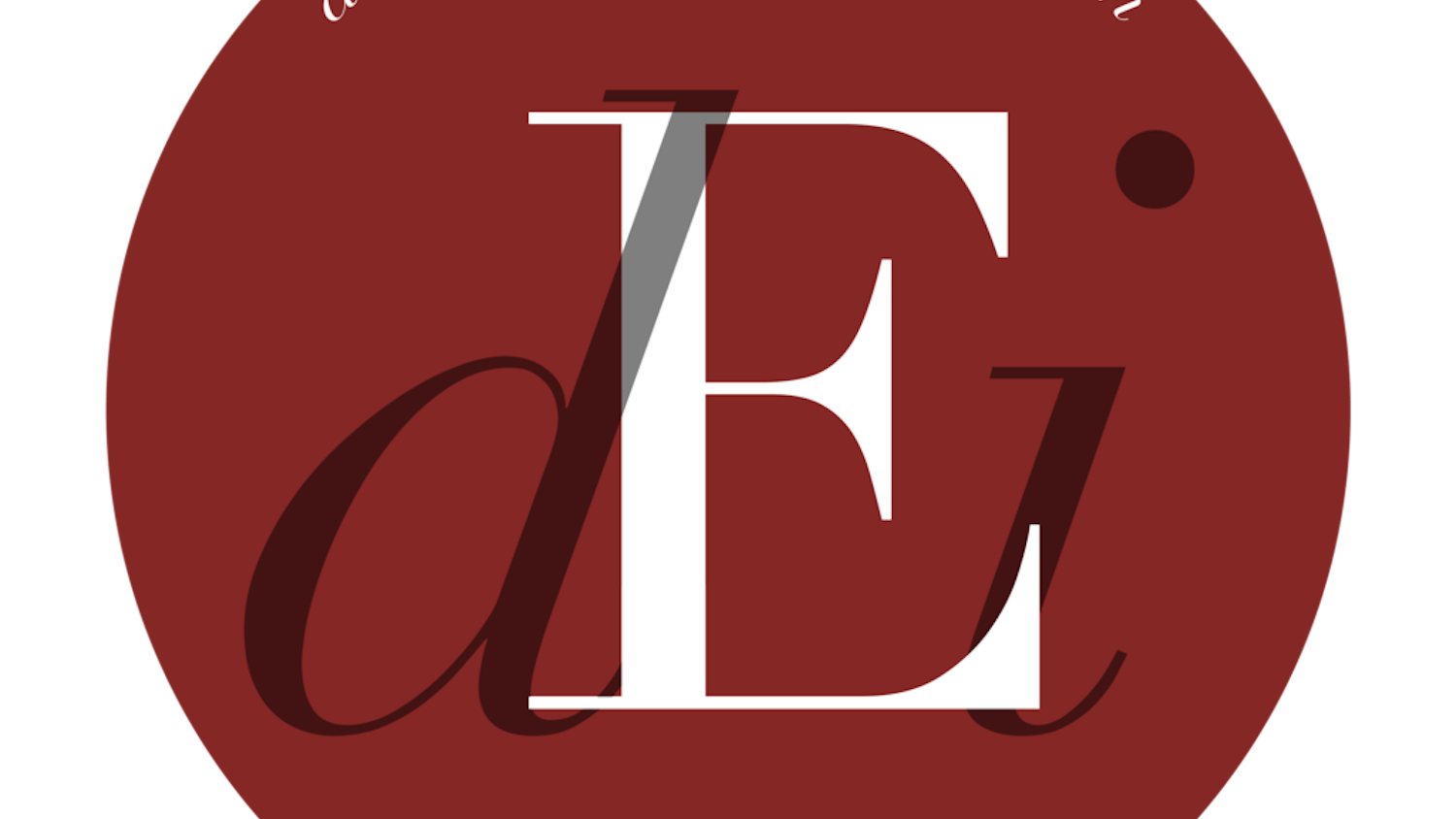Students often describe the American University community as an idealistic bubble tucked inside Tenleytown. It’s a bubble that is home to a transient, multicultural student community with an endowment of nearly $600 million, Doug Kudravetz, the school’s chief financial officer, wrote in AU’s 2016-2017 annual report. But how did we get here?
As Black History Month ends, I would like to present an account of AU’s connection to slavery in the United States. In short, American University’s founding is a dishonest celebration without acknowledging its direct relation to slavery and the demolition and displacement of Northwest D.C.'s African-American communities.
John Fletcher Hurst was the first president of American University. He was the son of Elijah Hurst, a prosperous slave-owning farmer and local magistrate in Dorchester, Maryland -- about a two hour drive from AU -- who inherited his father’s fortune. This included slaves, according to his biography.
Due to his father’s and rich uncle’s prosperity off of slave labor, Hurst went to college, studied abroad in Germany and returned back to a bishop position for the local National United Methodist Church, located near the current School of International Service building. His life is partially characterized as an asthmatic, extravagant playboy turned pious bishop, according to Hurst’s diary and biography.
During this time, Hurst’s father passed away on Aug. 4, 1849. The elder Elijah Hurst, right before his death, left a small farm to the younger John Hurst called “Weir Neck.” John Fletcher Hurst’s farm was assisted by slave labor, just like his father’s original farm and profits. It is noted that the younger Hurst directly owned two slaves and did not support abolition nor express anti-slavery sentiments.
During a 1895 sermon at a conference in Kentucky, John Fletcher Hurst remarked, “...in the settlement of my father’s estate, two colored men fell to me as slaves.” This does not take into account his father’s slaves and his uncle’s slaves from which he benefited immensely.
It was not until slavery had been abolished did John Fletcher Hurst express regret for society's and his immoral treatment of the black man, writing in his diary that “on my knees I declare that in future I will be the black man's friend.” Hurst’s decision to benefit from slave labor, own slaves and not speak out against slavery was not merely indicative of the times in which he lived. The Methodist Church was largely divided on the issue of slavery; John Fletcher Hurst clearly chose the pro-slavery side.
In his position as bishop, John Fletcher Hurst was primarily tasked with establishing the methodist university, in response to the opening of the Catholic University of America. Purchasing the land from Achsah Davis, he set off to fundraise money for the construction of the University. Through his own personal contributions, bolstered by slave labor capital, and community donations, Hurst accumulated $400,000 in the university treasury, according to biographies of Hurst. This money is noted to have been “well invested,” more than doubling, according to Albert Osborn’s biography of John Fletcher Hurst. In 1914, the year of first instruction, American University was de facto segregated despite earlier petitions from members of the Methodist Episcopal Church and Methodist graduate students in Berlin.
Furthermore, the Tenleytown Heritage Trail developed by Cultural Tourism D.C. and other biographies indicate that American University’s construction lured other developers to the area and nearby Tenleytown.
“By 1928, the (African-American) community’s fate was decided...Between 1928 and the early 1950s, the city razed Reno City, home to most of Tenleytown African-American families,” the authors of the pamphlet write.
The African-American community in Reno City disappeared from the area with very little indication left of them having ever lived there.
Today, the University hosts an annual event, the Founder’s Day Ball, specifically and originally created to honor John Fletcher Hurst’s life and work in founding the University. At his funeral, a prominent bishop remarked “John F. Hurst will sit quietly on the pedestal of that American University specially honored year by year on Founder's Day.” University buildings and the American University Park area boast the names of founders like President Hurst.
But there is no mention within our University of the Black slaves who, through their degrading servitude, directly and indirectly funded the creation of American University. There is no public mention of the original Black slaves who lived on and worked the land that American University exists on prior to Davis selling the land.
If Founder’s Day is a celebration of John Fletcher Hurst or the founding and construction of the actual University, it is an incomplete story without recognizing its connection to slavery and African-American displacement. In regard to AU’s website, the University’s conscious decision to curate and focus on solely the pious aspects of President Hurst’s life is unjust and erases the Black slaves his legacy was built upon. Even though the University notably enrolled 400 African-Americans while D.C. was still segregated, these students would have endured a time of Black Codes, imported Jim Crow, the D.C. race war of 1919 and unadulterated, pervasive racism. It is wrong to flatten their stories into a nameless, numerical figure. Through their enrollment, they are pedestals of American University.
Due to its origins, Founder’s Day is a largely dishonest celebration and antithetical to values of the University and the United Methodist Church. AU notes that “George Washington had dreamed of a ‘national university’ in the nation's capital. But it took John Fletcher Hurst to found a university that, in many ways, embodies that dream.” How fitting that this dream is built off the labor of slaves and literally on top of the rich slave history of the land.
Rather than ignore its historical ties to slavery, the University should reconsider holding this year’s Founder’s Day Ball at the National Museum of African American History and Culture, fund further research on the University’s involvement in slavery and slave-based wealth and publicly acknowledge its connection with slavery in the United States.
Nickolaus Mack is a junior in the School of Public Affairs and School of International Service and The Eagle’s managing editor for opinion.





